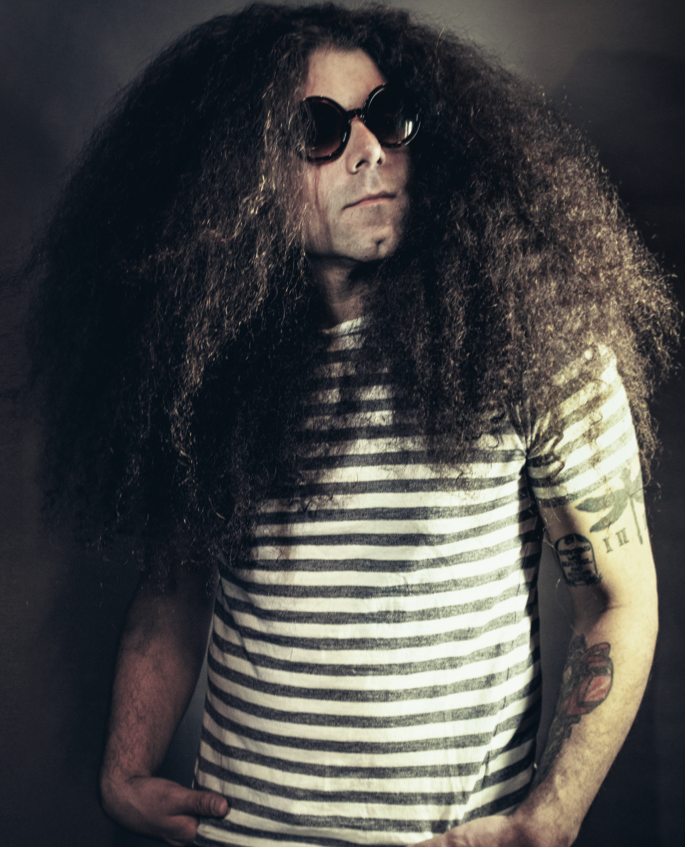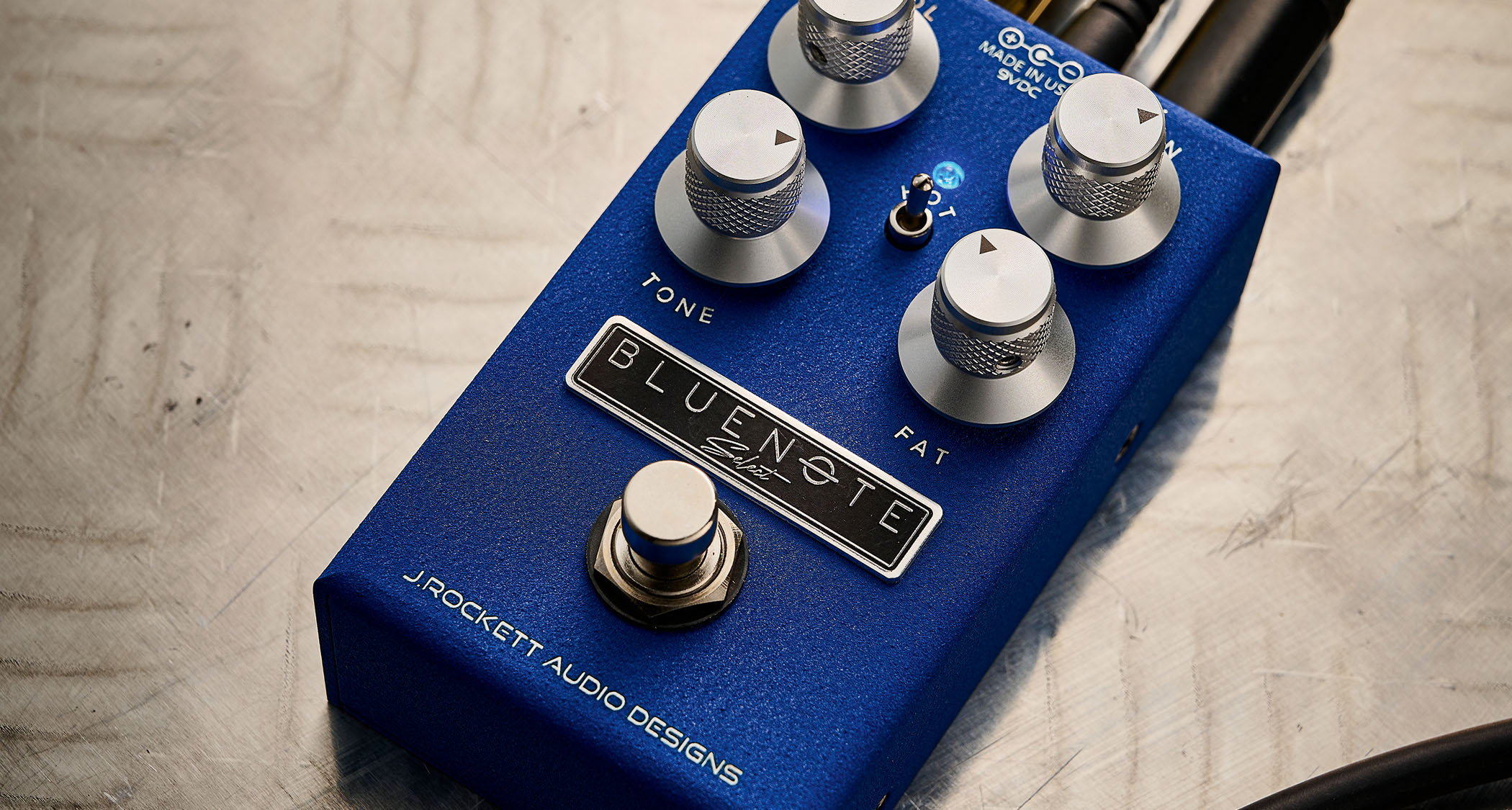Coheed and Cambria's Claudio Sanchez Talks Drug Raids, Hair Care and 'Star Wars'

Coheed and Cambria’s Claudio Sanchez. He’s the lead singer and guitarist for one of prog-rock’s most heralded outfits and has a wicked head of hair, but what Guitar World readers really want to know is…
You’ve talked about the fact that the new Coheed and Cambria record, The Color Before the Sun, is your first non-concept album due to all the things you were going through in your life at the time of writing it. But if everything had been okay for you personally, would this have been another record in the Amory Wars saga? — Crispin Frost
Yeah, probably. I think the reason there’s no concept is it was just sort of the product of my circumstances. My wife and I were living in an apartment in Brooklyn, which was great, but there was also a sense of exposure there. Like, I couldn’t write in the comforts I’m normally used to. When we were living in a country home, I could work all hours of the day, whereas in an apartment that just doesn’t fly.
That sense of exposure, knowing the neighbors could hear me and things like that, it kind of molded my approach. So I think if I hadn’t lived in Brooklyn and we had been in the country, yes, this probably would have been another Amory Wars record. But, I don’t know, there’s also the thing that my son was being born, and I felt like that was very important and I wanted the songs to reflect that as well.
I heard that your country house was turned into a pot farm without you knowing. What happened? — Michael Perry
While we were writing the new record, my wife and I had been traveling around and it just so happened that the family we thought we had rented our house to…wasn’t the family we thought we had rented our house to! While we were away they turned it into a grow house. We found out about it and we had the police do whatever investigation they could.
Unfortunately there wasn’t enough substantial evidence for them to actually deem it a crime scene, but between the smell and some of the things that were left behind they could speculate as to what had happened. And my wife and I actually got sequestered in questioning because they thought maybe we were involved, in terms of the insurance and trying to get a claim to happen. So it was pretty scary. It was also around the time we were expecting our son [to be born] and we were going to move out of the city and back to the country. So everything just felt kind of up in the air and was a little nerve-racking for a while. But it’s all fine now and the house is in great condition again.
Get The Pick Newsletter
All the latest guitar news, interviews, lessons, reviews, deals and more, direct to your inbox!
I love the new single “You Got Spirit, Kid.” But I was wondering—are you the “kid”? — Dominick Netherland
Possibly. Yeah. I think it’s about a bunch of different things. For me, after all the things I had endured in the songs before it, it got to a point where I was like, “Well, you know, my situation isn’t really all that bad.” So for the song I had this idea of “It could be worse.” This sort of “suck it up” mentality.
What gear did you use on the new record? — Paul Kampia
There’s a bunch of stuff. There’s my Gibson Les Paul, which is a VOS—it sort of mimics a guitar from the Seventies. And there’s a lot of my Gibson Explorers—the E2, and some ’76 reissues. I also played a ’77 Fender Tele Deluxe that belonged to [producer] Jay Joyce. I ended up using that on a lot of the songs. I liked it so much that I found one at this place called Carter Vintage Guitars in Nashville and I bought it. Then for amplifiers, I had an Orange 50-watt that I thought was great. That’s the main grit of my sound on the record. But live, we’re using the [Fractal Audio] Axe-Fx II, actually. We have cabinets onstage to push some air, but for the most part we’re looking for reliability, especially for traveling abroad. You just want the sound to be consistent.
I’ve read that you’re a big Star Wars fan. What’s your feeling on The Force Awakens? — Joe Ferrano
Oh, I’m excited. I mean, who isn’t? Seeing Han Solo again…he was my favorite character growing up. So seeing Harrison Ford come back, seeing the Millennium Falcon, I’m excited—so excited that I think I bought stock in Disney.
What is your all-time favorite metal album? — John Isaacs
Jeez, I really don’t know. Maybe Ride the Lightning. I’m just throwing one out there!
Is there a song that made you want to be a musician? — Gerard Balin
There’s a couple. One was Jimi Hendrix’s version of “All Along the Watchtower.” It made me question how the guitar could sound like that. It’s basically just a wah effect but for me as a kid it was like, “What is that? Why does the guitar sound like it’s talking?” That peaked my interest. And Sting’s “Englishman in New York,” because that sort of posed the question, “What is he talking about? What’s the alien?” I was so young when I heard that, and I thought he was talking about a spaceman. But he’s talking about an illegal immigrant. I didn’t realize…
What’s your hair care regimen? — Nathan Boles
There’s really no hair care regimen. [laughs] For me, my hair gets super knotty after a show. So really the only thing is a lot of conditioner and brush, just combing the knots out. But there’s not a whole lot I do to it.
I love your guitar riffs, especially all the twisting single-note patterns you put into the rhythms. Where does that come from? — Walt Jones
You know, I have no idea! Part of me thinks it’s a love for sequences. Sometimes I find that a lot of the patterns I construct very much mimic the sequences in, like, a Pink Floyd song. Like an “On the Run” sort of vibe. So maybe that.
Any books or movies you’re currently into? — Donald Greenhill
I’ve been watching E.T. a bunch. And I’ve been reading Empire of the Summer Moon, which is about the rise and fall of the Comanche Indians in the U.S. Where I live in Brooklyn you just find stuff on the street all the time—stoop books. And I saw it and was like, “Oh, man, I’ve been meaning to read this!” So I’ve started checking it out. And it’s great. It’s a pretty interesting read.
A few years ago Coheed and Cambria got to tour with Iron Maiden. What was that like? — Lawrence Megerian
Oh, amazing! Being fans of Iron Maiden for years it was just really nice to share a moment with the band. I think there was a night where Steve Harris came into the dressing room and paid us a compliment, which was huge. So it was a great experience. And the funny thing is, we did that tour after we did our cover of “The Trooper” [featured on the 2008 tribute album Maiden Heaven]. I don’t know if they had heard it. And around the same time, we toured with Heaven and Hell, which was Black Sabbath with Dio. And we played “The Trooper” on that tour, and then when we played with Iron Maiden we decided to do “Heaven and Hell.” So we flip-flopped them.
When Coheed and Cambria first came out in the early 2000s you were part of the whole emo/screamo/post-hardcore scene. Did you feel like you belonged? — Kim Turan
To some degree. For starters, we were affiliated with Equal Vision Records, and that was what they were putting out and those were the bands they could put us on the road with. And there’s definitely bands in the genre that I love—Sunny Day Real Estate, the Get Up Kids, At the Drive-In. So, sure. And I don’t think it was a bad place to be put into. But I think we also try to be as limitless as possible when it comes to what we do.
Is it true that, early on, Travis [Stever, Coheed and Cambria guitarist] was the singer in the band and you were just the guitar player? — Jon Cooper
There was a moment, yeah. You know, we played in so many different bands together but it was always, like, the same members but with different band names, just because we were all friends. But there was a moment before this band became what it’s become where Travis was the singer. How did it change? I guess Travis couldn’t make it to a rehearsal and the drummer at the time thought I should just sing, because I was singing the parts. And I had sung a little bit before that, but I had never really done the frontman/singer thing.
You pack a lot of words into your songs. Do the lyrics or the vocal melodies usually come first when you’re writing? — Juliet Whitley
The vocal melodies. The ideas will certainly be there but the lyrics are always sort of the last thing. So the melodies come first when working on the skeleton of the song. And I think a lot of that has to do with the fact that I like beats. I like syllables.
Do you have a favorite and a least favorite Coheed and Cambria song? — Colin Harrison
Well, one I’m really enjoying at the moment is “Colors,” on the new record. That one just speaks to me. It’s a pretty good song! As for a least favorite, I feel that everything has its place and time. So there’s nothing I hate. If I had to pick something I dislike even a little bit, it would probably be one of the songs that’s not on the albums that fans call for, like “Elf Tower New Mexico,” which was on the rerelease of The Second Stage Turbine Blade. Our audience asks for it every once in a while and I’m just like, “Ahh, why?”
Looking back on your career, is there anything you would have done differently? — Marc Kraft
I feel that way about everything. I think as an artist you’ll always want to do things differently. Although I was just reading the other day, I think it was a Jimmy Page interview, where he said something like, “I would not go back and do anything different with Zeppelin.” Which, I mean, probably feels true if you’re fucking Jimmy Page! But for me I’ll always feel like things could have been done differently.
Rich is the co-author of the best-selling Nöthin' But a Good Time: The Uncensored History of the '80s Hard Rock Explosion. He is also a recording and performing musician, and a former editor of Guitar World magazine and executive editor of Guitar Aficionado magazine. He has authored several additional books, among them Kurt Cobain: Montage of Heck, the companion to the documentary of the same name.
Guitar World Discussion: Who is the most underrated guitar player of all time?
Ozzy Osbourne’s solo band has long been a proving ground for metal’s most outstanding players. From Randy Rhoads to Zakk Wylde, via Brad Gillis and Gus G, here are all the players – and nearly players – in the Osbourne saga











